Workshop Concludes with Focus on Reporting and U.S. Aid Impact In a significant effort to strengthen the relationship between the United States and Pakistan, the recent workshop organized by the 360 Media Foundation in collaboration with the U.S. Consulate has concluded on a positive note.
The workshop, which was held from January 23 to 25, 2025, aimed to shed light on the various projects supported by the U.S. to alleviate the challenges faced by the people of Pakistan
This initiative highlighted the importance of journalism in fostering people-to-people connections, thereby enhancing mutual understanding between the two nations.
Engaging Journalists from Karachi Region
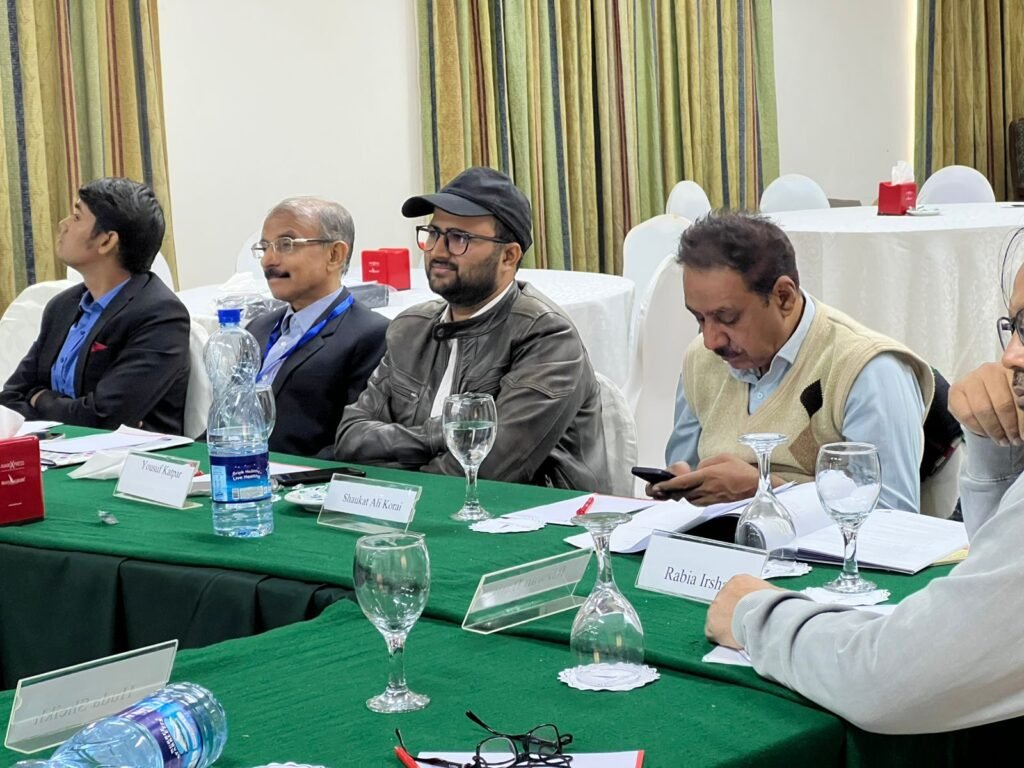
Hosted at a local hotel in Karachi, the workshop brought together 25 journalists from the region, comprising both male and female participants. The theme of the workshop, “Increasing Awareness of the U.S.-Pakistan Partnership Through Reporting Tours,” was designed to equip journalists with the necessary skills for investigative reporting, emphasizing the effective use of the Right to Information (RTI) law in Pakistan.
The participation of journalists from diverse backgrounds underscored the commitment to inclusive reporting while acknowledging the unique challenges faced by various communities.
The workshop aimed to empower these journalists to explore important narratives that can impact public perception and policy decisions.
A Comprehensive Training Experience
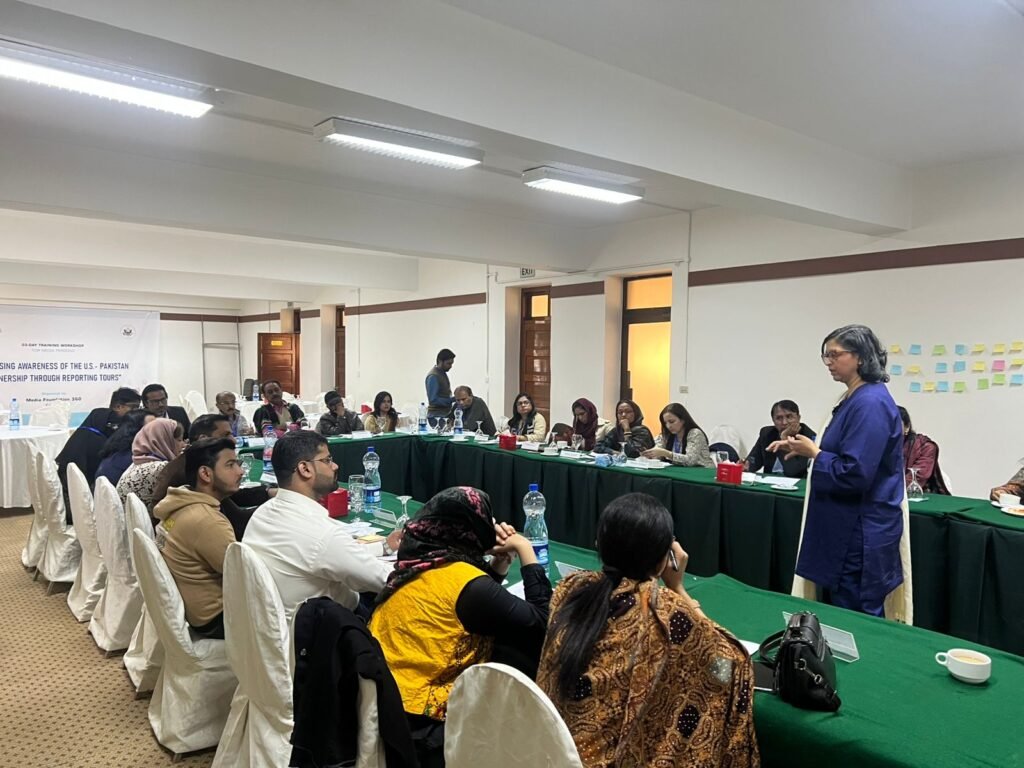
Over the course of three days, the workshop featured 11 intensive training sessions led by prominent trainers in the field. Leading figures such as Mubasher Bukhari, Fatima Ali, and Tehmina Qureshi shared their expertise, providing participants with a comprehensive understanding of investigative journalism.
The sessions covered a wide range of topics, from mastering the RTI law to effective storytelling techniques.
Mubasher Bukhari, a renowned journalist, emphasized the significance of mastering the RTI law and crafting effective requests for public information. His session focused on the innovations in reporting and the future of journalism, encouraging participants to think critically about how they can leverage available resources to enhance their reporting.
Tehmina Qureshi, known for her impactful investigative work, led a session that delved into the preparation required for successful investigative reporting. She highlighted the importance of accuracy, fact-checking, and the ethical dimensions of journalism, which are crucial for maintaining credibility in reporting. Qureshi also underscored the role of investigative journalism in safeguarding democracies, inspiring participants to take their responsibilities seriously.
Fatima Ali, a senior journalist with extensive experience in visual storytelling, conducted a session on the power of reliable sources.
She discussed how incorporating expert voices can enhance news reporting, while also sharing her techniques for crafting compelling video reports that resonate with audiences. Her insights were particularly valuable for journalists looking to diversify their storytelling approaches.
Building Bridges Through Strategic Reporting
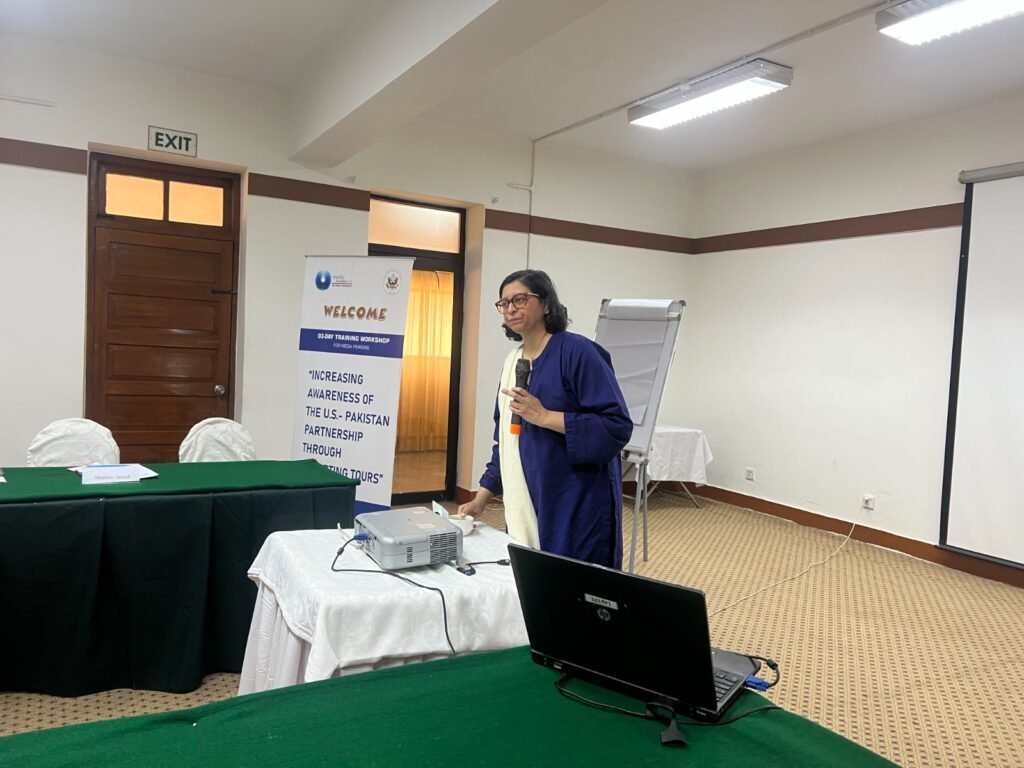
The workshop also included sessions led by senior journalist Lubna Jarar, who focused on transforming news from mere facts to insightful perspectives. Her discussion on reporting the Pakistan-U.S. strategic relationship emphasized the importance of context in journalism. Participants learned how to build narratives that not only inform but also engage readers on a deeper level.
Tauseef Razi Malik, another experienced journalist, shared effective interview techniques for extracting key information from sources.
His practical advice and interactive demonstrations helped participants understand the nuances of interviewing, crucial for successful investigative reporting.
Collaborative Ideation and Future Projects
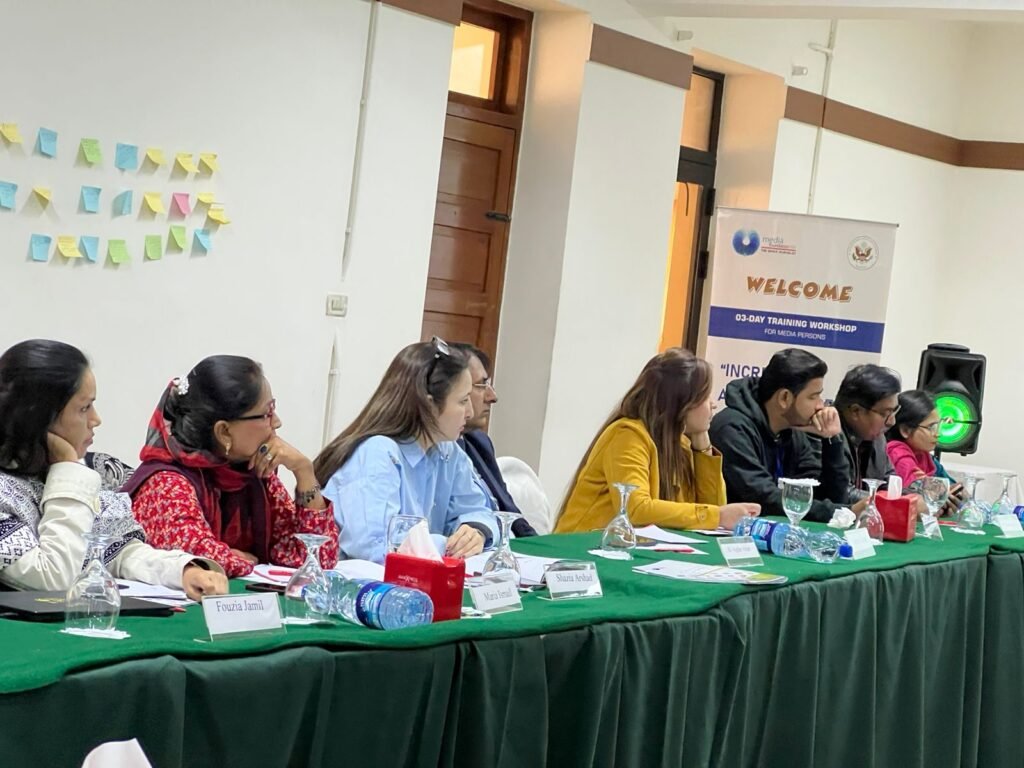
As the workshop drew to a close, participants engaged in a collaborative session where they shared their ideas for future investigative stories. This brainstorming segment allowed journalists to discuss potential topics that could explore the impact of U.S.-backed projects in Pakistan, particularly those funded by USAID. The importance of these projects in improving the lives of ordinary Pakistanis was a recurring theme, and participants were encouraged to dig deeper into these narratives.
The trainers provided guidance on how to approach these stories effectively, emphasizing the need for thorough research and the ethical considerations involved in reporting on sensitive issues.
The collaborative environment fostered a sense of community among the journalists, reinforcing the idea that impactful storytelling can lead to meaningful change.
Conclusion.
A Step Towards Empowered Journalism
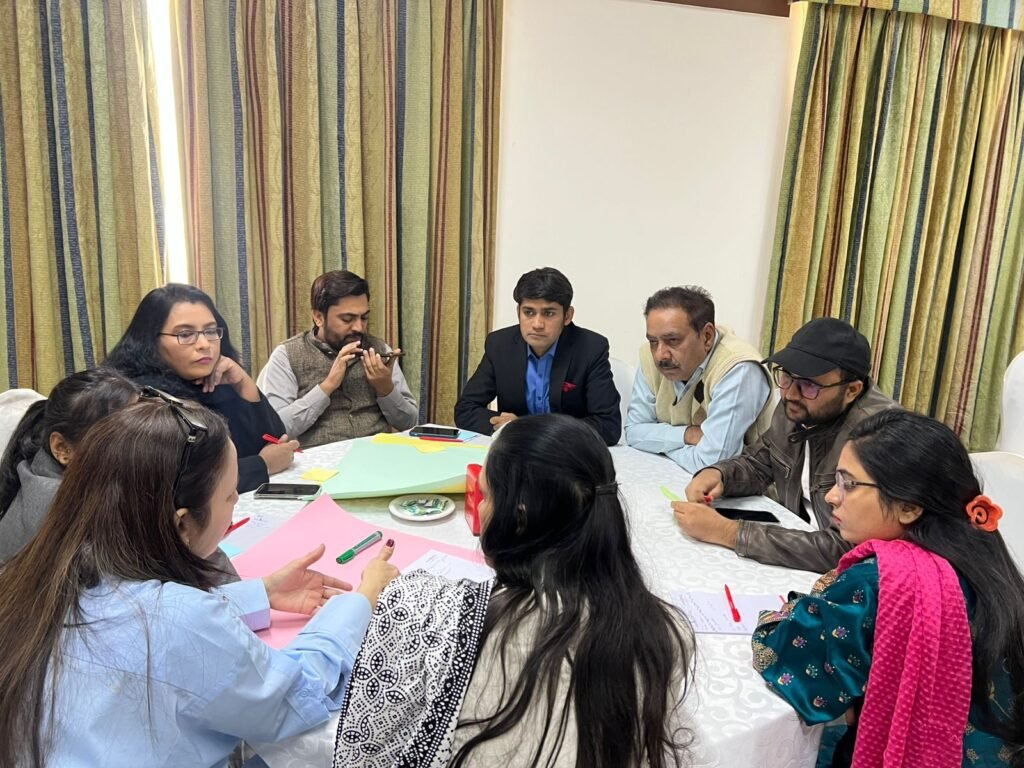
The workshop was not just a training session; it was an empowering experience that equipped journalists with essential tools for impactful reporting. By focusing on the U.S.-Pakistan partnership, the event underscored the tangible benefits of U.S. assistance to the Pakistani populace. As participants left the workshop with newfound skills and insights, they were better prepared to tackle the challenges of investigative journalism, armed with the knowledge that their work can contribute to positive change in society.
This initiative marks a significant step forward in fostering a well-informed public and enhancing the capacity of journalists in Pakistan. With the skills acquired during this workshop, these journalists are poised to uncover stories that matter, bridging gaps between communities and illuminating the path toward a brighter future for both nations.

